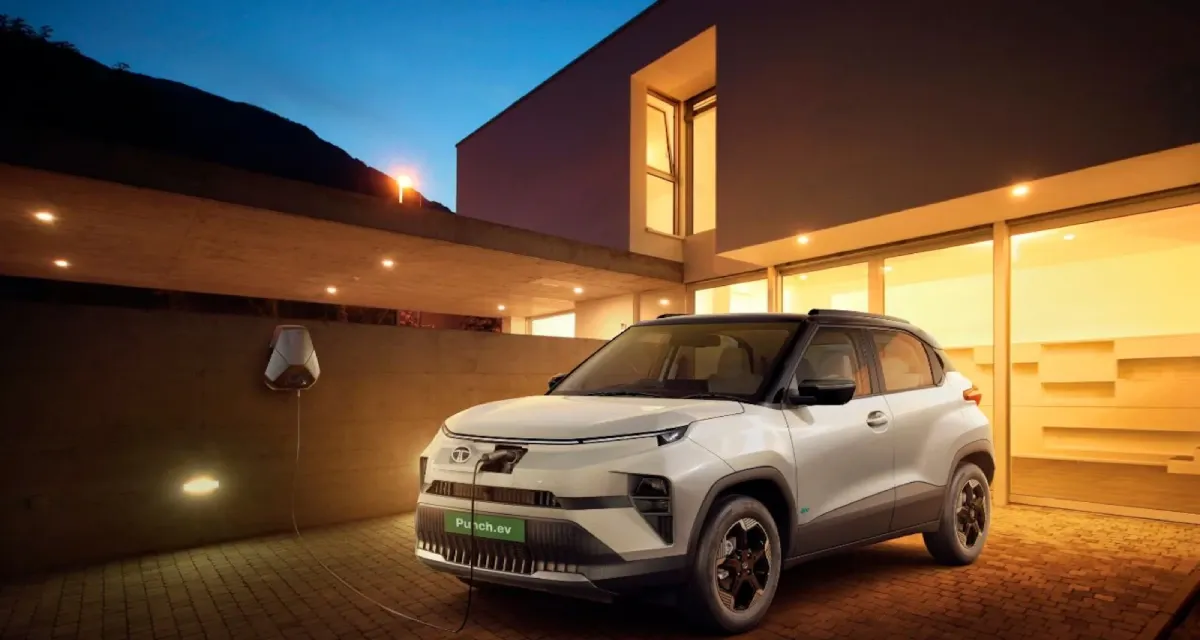

The Tata Punch EV, launched earlier this year, marks Tata’s first EV built on the new Acti.ev platform. It boasts a futuristic design, a host of features, and two battery pack options. However, there are a few areas where it could improve. Here are our observations, broken down into pros and cons.
Two Battery Pack Options
25 kWh and 35 kWh: The smaller battery offers a real-world range of about 200 km, while the larger one provides around 300 km. These ranges are generally sufficient for daily city driving.
Usage Suitability: The larger battery pack is ideal for both city and intercity travel. For city-only use, the smaller battery pack can save money.
DC Fast Charging: Both battery packs support DC fast charging, which is convenient for quick charging on the go.
Interior Tech: Dual 10.25-inch displays for infotainment and driver’s information, wireless Android Auto & Apple CarPlay, automatic climate control with rear AC vents, single-pane sunroof, ventilated front seats, and an air purifier.
Safety: Comes standard with 6 airbags, electronic stability control (ESC), electronic parking brake with auto hold, and a tire pressure monitoring system (TPMS). Also includes a 360-degree camera with a blind view monitor, a rare feature for its size and segment.
Quick Acceleration: Electric cars are known for their quick acceleration, and the Punch EV excels here. It offers a fun-to-drive experience with a balance of power and poise.
Performance: The long-range version, with a 122 PS electric motor, can accelerate from 0-100 kmph in just 9.5 seconds.
Rear Seat Experience
Limited Space: While marketed as a family SUV, it comfortably fits only four people. The car's width makes it challenging to seat three passengers in the back without discomfort.
Headroom and Support: Taller passengers (over 6 feet) might feel cramped, though the headroom is generally good. Under thigh support is adequate but not exceptional.
High Cost: Electric vehicles typically cost more than their internal combustion engine (ICE) counterparts, and the Punch EV is no exception. The top-spec model exceeds Rs 15 lakh, placing it in competition with subcompact SUVs like the Tata Nexon and Kia Sonet.
Value for Money: At this price point, buyers could consider lower-spec variants of larger SUVs like the Hyundai Creta or Maruti Grand Vitara, which offer more features, better driving experience, and more cabin space.
The Tata Punch EV is priced from Rs 10.99 lakh to Rs 15.49 lakh (ex-showroom) and competes directly with the Citroen eC3. It also serves as a more premium alternative to the Tata Tiago EV and MG Comet EV. While it offers many attractive features and solid performance, its price point might deter some potential buyers seeking better value for money.
Also Read: